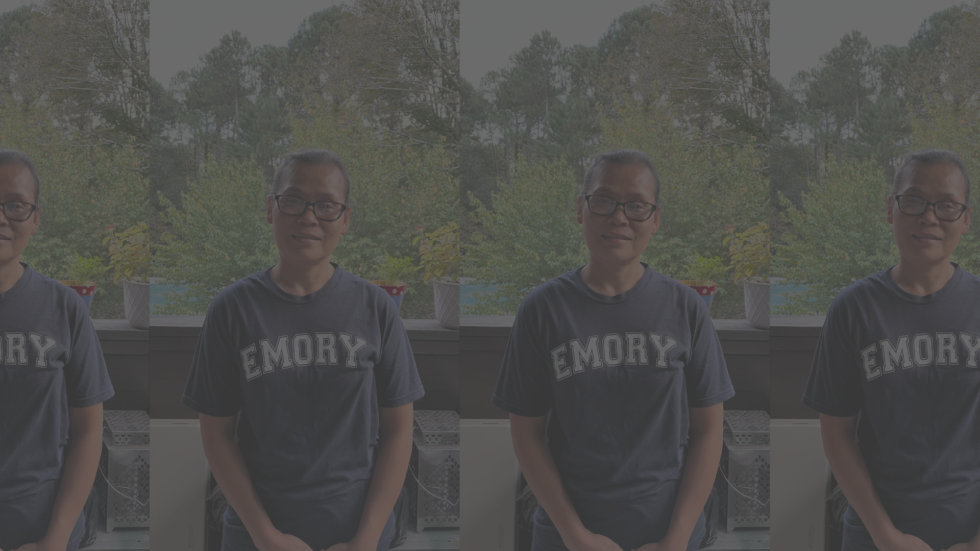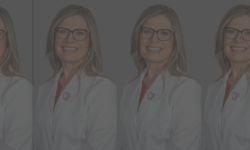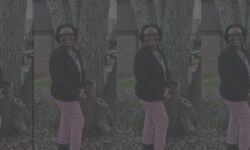
On April 7, 1975, the Khmer Rouge communist regime conquered the Cambodian capital of Phnom Penh. Their occupation aimed for Cambodia to become a classless society, instituting extreme communism and abolishing civil and political rights, money, private property and religion.
Citizens were forced to farm in harsh conditions, and anyone deemed an “intellectual” was killed, including doctors, teachers and lawyers. Between the regime’s control from 1975 to 1979, over 2 million people lost their lives from cruel farming conditions and executions.
Emory University Hospital Cardiac Registered Nurse Phalary Huy is a Khmer Rouge refugee. After she lost her mother and father during the regime’s occupation of Cambodia, she received sponsorship from a church in New Jersey to immigrate to the United States in 1980.
Huy eventually obtained a college education in the States, where she has worked as a registered nurse for the past 26 years.
Education: Undergraduate and Nursing
Due to her status as a Khmer Rouge refugee, Huy sought a career focused on helping others and giving back to her community.
“I wanted to go into medicine, because I wanted to help people and refugees, and, you know, just to give back,” Huy said.
Choosing a healthcare career would allow Huy to help people feel better and be reunited with their families, which she never got to experience with her parents. And after receiving acceptances into multiple undergraduate colleges, she chose to enroll at Emory University because of the generous financial aid, the convenience of her older sister also attending the university, and the proximity to home.
It was during her undergraduate years at Emory that Huy’s career changed from medicine to nursing. One day, she came across a nursing table at a job fair, where she took interest in the profession, enjoying the fact that she could care for the well-being of the patient and assist the doctor.
“[Nursing] kind of worked out because [it was] more practical, and it was straightforward,” Huy added.
The thought of success and lifting the burden of being less than others still appealed to her.
Huy recalled spending her undergraduate years exploring her youth and independence. She noted that she lived with ease and did not stress too much over her classes; however, she struggled with the fact that most of her peers were wealthy, “privileged” and white.
“I’m Asian, and back then there were not a lot of Asian people there — I was definitely the low income student, So, it was just different,” Huy said, “You just feel like you’re not as wealthy, and they don’t think that you’re as smart as they are, because you’re [a] minority.”
In 1994, Huy graduated with a major in Sociology and a minor in Psychology. She chose to attend Emory Nursing School due her familiarity with Emory — she already knew the campus by heart and did not desire to leave home.
Huy’s experience at the nursing school was significantly different from her undergraduate years. She noted that she experienced less discrimination from her peers, and the student population was generally older, more racially diverse and had a greater number of female students.
However, instead of being able to pick classes like she could in undergrad, there was a required set of classes that nursing students had to take. There was also a higher pressure to do well — if she failed a class, she would have to wait another year until she could repeat the course.
Huy took classes spanning a wide range of different topics, including nursing theories, where she learned the scope of nursing practice, to clinical rotations, where she applied her skills in a healthcare facility. Her favorite class was the nursing simulation lab, where she first practiced her nursing skills on mannequins.
“It was more interesting, it was hands on, and it was more practical,” Huy added. “And it’s just to help you get ready to actually do nursing.”
Nursing, Then and Now
When Huy graduated from nursing school, she had set her mind on being a pediatric nurse instead of a cardiac nurse.
“I wanted to work with children and take care of [them], just because I had lost both of my parents when I was young,” Huy said.
Unfortunately for Huy, there were not many jobs available for pediatric nurses. She took the role of a cardiac nurse, because the only job available was a night shift at the cardiovascular surgery unit at Emory University Hospital.
“I’m glad I became a cardiac nurse instead, Because I don’t think now that I would have been a good pediatric nurse,” Huy said. “I don’t think I would be able to withstand all the emotional and depressing circumstances.”
During her first year of being a nurse, Huy recalled feeling scared and apprehensive. She feared accidentally hurting the patient, or not understanding the doctors’ requests. The older nurses would also look down on her, criticizing her when she did not know how to do something.
However, this first year helped teach Huy how to trust in herself, listen to the doctors and work hard.
Huy said that she faced discrimination from her patients: because much of their patient population was white, they viewed her differently than other white nurses.
“Back then, most of the patent population was majority Caucasian, so they look at you being a minority — Asian — as not being capable of taking care of them,” Huy said. “They don’t trust you, as much as they would trust a Caucasian nurse. So, you get that feeling they just don’t trust you, and that you can’t take care of them.”
Computerized charting, which replaced the paper charting Huy was used to when she first started nursing, was a challenge for her to adapt to. However, she noted that relying on paper charts would oftentimes lead to a greater chance of making mistakes — with “double check” tools, Huy noted that nurses are able to review their charting and ensure everything was filled out correctly
Huy also recalled the physical strain of putting on the protection gowns, masks, face shields and goggles during the COVID-19 pandemic, a time when she could not take off any of her personal protective equipment until the end of her 13-hour shift. COVID-19 affected her physically and emotionally, noting that many nurses were worried at the beginning of the pandemic, when there was no vaccine.
“You’re scared of getting COVID and [that] something bad might happen to you and then you’re giving it to your family,” explained Huy. “So that definitely was a lot of emotional strain on you and also physically too, because you were scared.”
Additionally, hospitals in the United States gave little support to their nurses and demanded a 62% increase in workload, giving rise to heightened workplace burnout and stress. These burdens led to almost 100,000 nurses quitting their jobs, as well as another 610,388 nurses reporting an “intent to leave.”
Although the conditions were rough and the pay was not great, Huy ultimately chose to stay, adding that her coworkers, patients and family relied on her too much for her to leave.
“I’m trying to help people get better, so that they can, you know, go back to their family and live longer,” Huy said. “To help other people and [help] the community and try to give back — and just be compassionate and understanding to the sick patients.”








I’ve heard it said, “Don’t meet your superheroes because when they disappoint you – and they will disappoint you – you will no longer believe in superheroes”.
However, I am fortunate to have met Phalary Huy in 1988, and I’m even more fortunate to have known her ever since. She is my superhero.
To all the healthcare workers out there, I thank you for your service, your endurance, and your heart.
Thank you for your kind words, Danny! We are certainly very grateful to have spoken with Nurse Huy and are extremely thankful for her years of service in the healthcare community.
– Ashley | Director of The Medical Archives